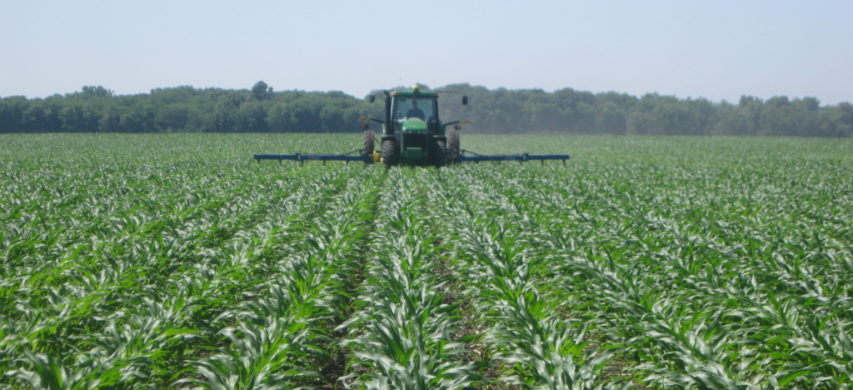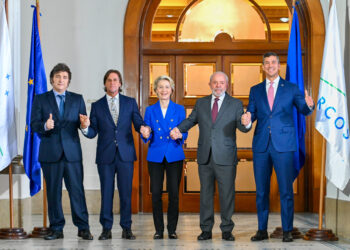Brussels –Savings for the sector estimated at 1.58 billion a year and 210 million for national administrations, an increase to 2,500 euros in the annual flat-rate payment limit for small farmers, and the possibility for countries to allocate up to 3 per cent of annual CAP (Common Agricultural Policy) funds to help producers cope with the effects of natural disasters or animal diseases. These are some of the elements of the simplification proposal of the CAP presented today (May 14) by the European Commission.
The goal is to lighten the system for the benefit of “competitiveness, resilience, and digitisation of the agricultural sector, as well as, in particular, young farmers and organic farmers.” According to Brussels, “farmers across the EU are subject to heavy administrative obligations that are disconnected from the reality on the ground, time-consuming and cost-generating, leading, as a result, to “lower acceptance of obligations” and “discouragement of investment.”

The lever that the Commission intends to operate is, therefore, that of simplification. European Commission Vice President for Cohesion Policy Raffaele Fitto said at the press conference presenting the proposals that “we are listening to the needs of the agricultural sector and responding in a targeted way to their demands, in order to put them in the best conditions to work, strengthen the competitiveness of the sector, and offer European citizens a modern and efficient agriculture, focused on the product and not on bureaucracy.”
Meanwhile, positive comments came from Copagri President Tommaso Battista, who called the measures proposed by the EU executive “a further and important step on the path to simplification and de-bureaucratization of the CAP, as loudly requested by agricultural producers, and matches the first package of measures approved exactly one year ago.” Positive comments alsoby the CIA, which spoke of an “opening signal that CIA-Agricoltori Italiani welcomes, while reserving the right to a more accurate analysis to understand its impact on Italian producers.”
First, the submission of aid applications for small farmers will be simplified thanks to a simplified payment scheme whose limit will be increased from €1,250 to €2,500. “Farmers who would receive up to 2,500 euros per year will no longer have to fill out detailed applications and will no longer have to provide documentation of respect with cross-compliance,” detailed Agriculture Commissioner Christophe Hansen.

The EU Commissioner for Agriculture, Cristophe Hansen
Second, “we had to take concrete stock of the environmental requirements” of the CAP. For Hansen, European agricultural policy is “the greenest ever and this direction will not change,” but “it is difficult to impose a single, standardised set of rules on an extremely diverse sector.” Therefore, “more responsibility” is left to member countries in implementing certain requirements through their national legislation. For example, if CAP cross-compliance overlaps with existing mandatory national requirements, they will be considered “equivalent, and there will be no need to set additional requirements for farmers.” Or it will be given “the possibility for member states to financially compensate farmers for the possible costs and impact on their income of complying with wetland and peatland cross-compliance, i.e., BCAA number 2.”
Similarly, “greater flexibility in the management of permanent grassland” will be provided by giving “a longer deadline, of seven years, for land to be classified as permanent grassland” that “prevents farmers from ploughing unnecessarily to avoid permanent grassland designation.” Organic farms will be excluded from complying with five cross-compliance requirements and will, in effect, automatically be deemed to comply with some of the EU’s environmental requirements for funding purposes.
Among other elements, there is the possibility for small farms to receive a lump sum of 50,000 euros as an aid to boost their competitiveness. With respect to the impact of natural disasters on the sector, “we are giving member states the possibility to create a national crisis intervention fund as part of their CAP strategic plan,” Hansen pointed out. In other words, “member states will be able to use CAP funding to compensate farmers affected by natural disasters, animal diseases or plant pests. We are talking about 3 per cent of their annual CAP funding,” he said.
Finally, regarding checks, the Commission explained that “they will be simplified through the use of satellites and technology” so as to reduce the administrative burden. In addition, a new principle will be introduced: one on-the-spot check per farm per year. “We want to introduce the single digital agricultural profile,” and “we will encourage member states to set up their system so that information is shared,” Hansen said.
Now, the legislative proposal will be submitted to the European Parliament and the Council for adoption. Commissioner Hansen called on the co-legislators to do so “by the end of the year, so that the changes can reach farmers as early as 2026.”
English version by the Translation Service of Withub










![Il presidente degli Stati Uniti, Donald Trump, al Wold Economic Forum [Davos, 21 gennaio 2026]](https://www.eunews.it/wp-content/uploads/2026/01/trump-davos-260121-120x86.png)